Everything
“When I choose to see the good side of things, I’m not being naïve. It is strategic and necessary. It’s how I learned to survive through everything.” Waymond, one of the main characters in Everything Everywhere All at Once, says this near the end of the film when he explains how he had gotten so far in life despite the hardships he faced. A rather poignant moment in the film that alters the entire outlook of the story, but more importantly a quote that unfortunately resonates with minority groups around the world that face oppression every day.
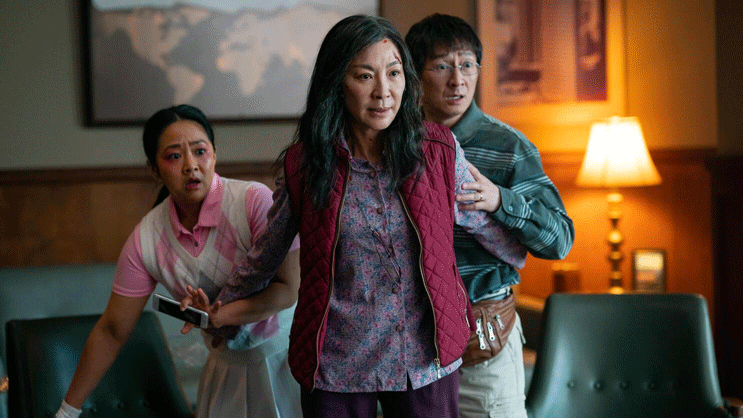
The mainstream film industry has not been considered the most welcoming to minority groups, with female creatives and people of colour in the industry often offering no space to portray and tell their own stories. In the Hollywood industry, many women have had their voices silenced by male executives like Harvey Weinstein, with only 24 per cent of the top 250 movies of 2022 having “behind the scenes women involved, Asian women have been almost exclusively cast as hypersexualized and disempowered characters unable to tell authentic stories and Asian creators have not been afforded the opportunity to write beyond characters that serve as the punchline.
With all of this and the fact that Asians have been consistently told that their stories would never be good enough for the box office, it seems that the film industry has a lot of work to do when it comes to ensuring that the United Nations Sustainable Development Goals for Reduced Inequalities and Gender Equality are met.
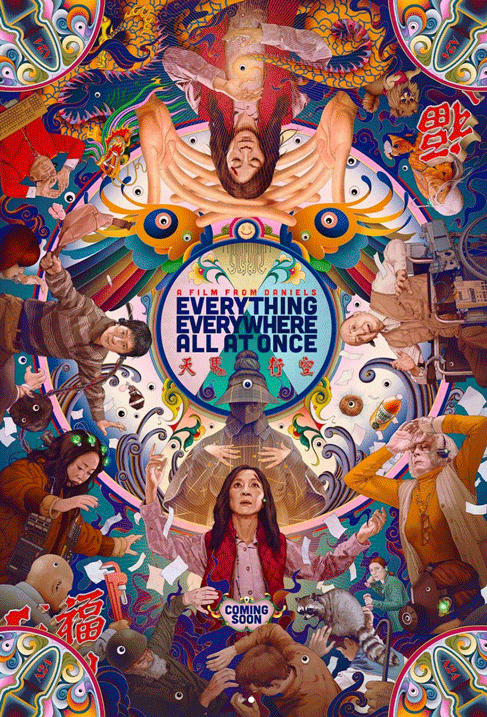
Everything Everywhere All at Once ignores this and seemingly, the team behind the film has taken the role of meeting the goal of Gender Equality and Reduced Inequalities into their own hands. The film tells the story of Chinese immigrants, Evelyn and Waymond, who own a local laundromat and struggle with filing their taxes and raising their daughter Joy. The film, broken up into three parts, through what can only be described as a frenetic pace, weaves together untold stories of the Chinese immigrant experience, familial relationships, philosophical what-ifs, queer identity, suicide and generational trauma. The film is, in the best way, an assault on the senses and emotions.
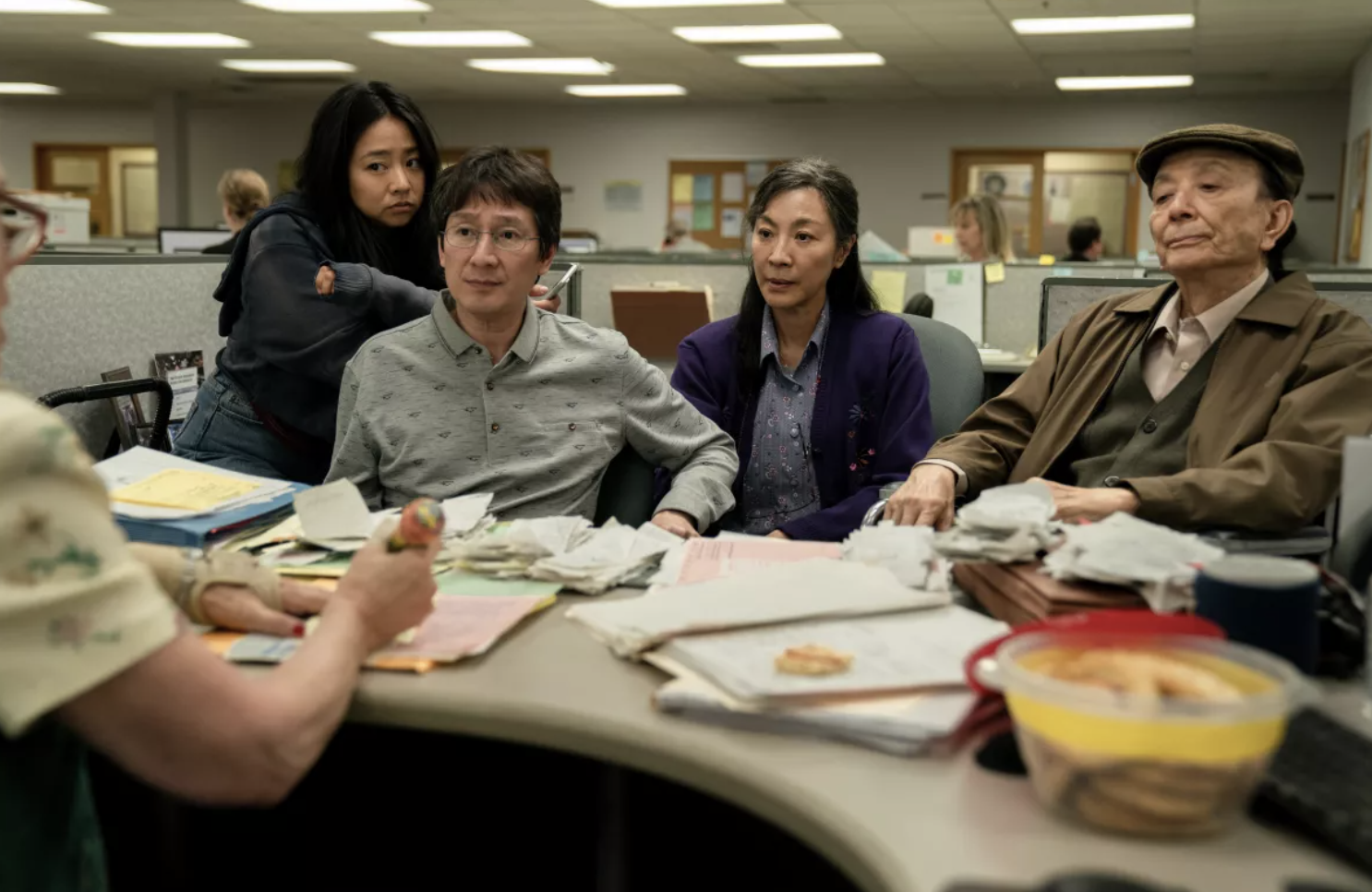
“Everything” takes on the most frenzied storyline of the film. Establishing the characters and witnessing the struggles that each has been through, including Evelyn’s lack of acceptance for her queer daughter, her overbearing father whose expectations she will never live up to and her kind, a child-like husband who wants a divorce. Part one also sets up the multiverse, in which Evelyn gains access to all the “what-ifs,” which makes her wonder why this version of herself is so depressing.
“Everywhere” so brilliantly develops on the multiverse and reveals that Evelyn’s daughter Joy is the story’s “villain.” Yet, in exploring the immigrant and Asian-American experience and generational trauma, the team behind the film so brilliantly hints that Joy is not truly evil, rather she is tirelessly searching for a universe that accepts her and although it is Joy doing the searching, this seems to be a direct reflection of the feelings of rejection and desperation that so many minorities in the film industry feel.
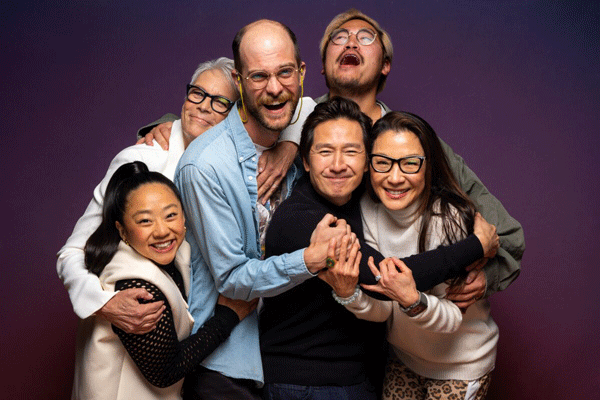
“All at Once” is a masterful conclusion. A conclusion that sees that ignoring differences and putting people down for what you have been taught is wrong does not solve anything, rather it is acceptance, kindness and love that win out over the struggles each character faces throughout. Maybe this isn’t a lesson just for Evelyn and the others, but also a lesson for the industry: you can’t ignore these stories forever, because eventually the love, kindness and acceptance within minority stories will take their rightful place in the industry.
Encompassing all the stories the industry has been so scared to showcase, the plot of Everything Everywhere All at Once truly is everything.
Everywhere
“Every rejection, every disappointment has led you here to this movement,” says Alpha-Waymond to Evelyn when attempting to convince her to take on her role in saving the multiverse. Although meant for Evelyn, the quote rings true for the team involved in creating Everything Everywhere All at Once.
Leading up to the 2023 Academy Awards, rejection and disappointment seemed to be all there was for minorities in the industry. With only three other films made by Asian creatives winning Best Picture and only one woman of colour winning Best Actress in the last 95 years, most minorities in the film industry set out on their careers with the feeling that no matter what their stories won’t be told and if they are, they won’t receive the recognition their deserve.
Everything Everywhere All at Once broke the mould. Completely sweeping the Oscars – with seven wins – and preceding awards shows such as the Screen Actors Guild Awards, the film has made history as the most awarded movie of all time.
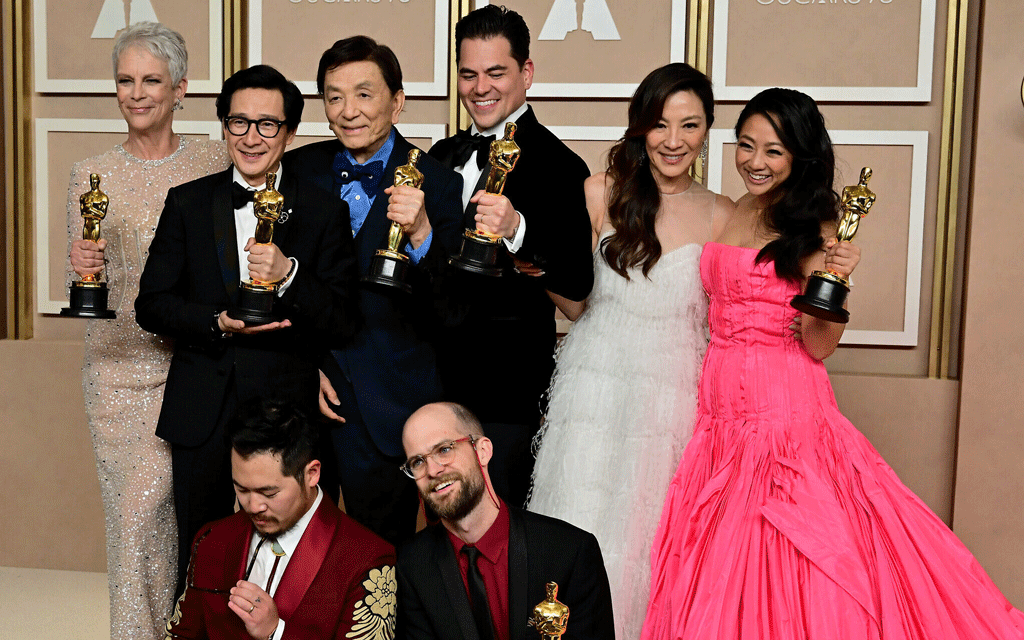
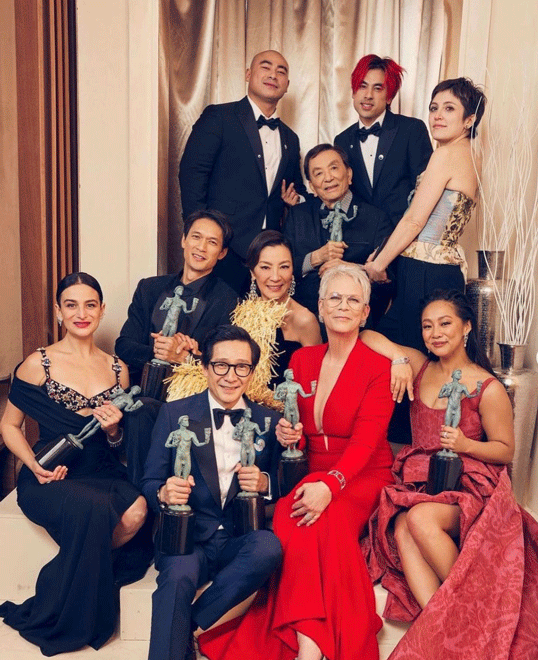
“For all the little boys and girls who look like me watching tonight, this is a beacon of hope and possibilities. This is proof that dreams do come true. Never give up,” said Michelle Yeoh, who plays Evelyn during her monumental Oscar acceptance speech for Best Actress. With the film winning Best Picture, Yeoh becoming the first Southeast Asian woman to win Best Actress and Ke Huy Quan, who plays Waymond, winning Best Supporting Actor, Everything Everywhere All at Once is showing the film industry and the world that Asians and minorities in the industry have a lot to say, but most importantly that there is hope for a world where inequalities don’t damper the creative endeavours of the Asian community.
To put it simply, the film industry can no longer hide from the stories Everything Everywhere All at Once portrays, because now, they are everywhere.
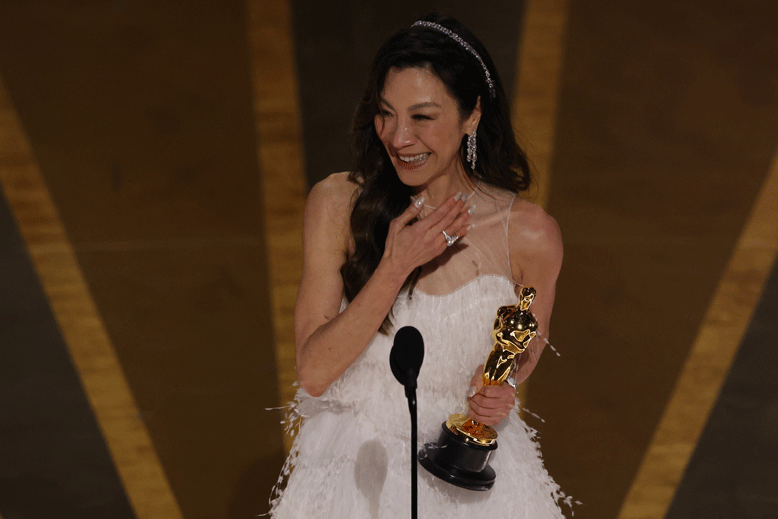
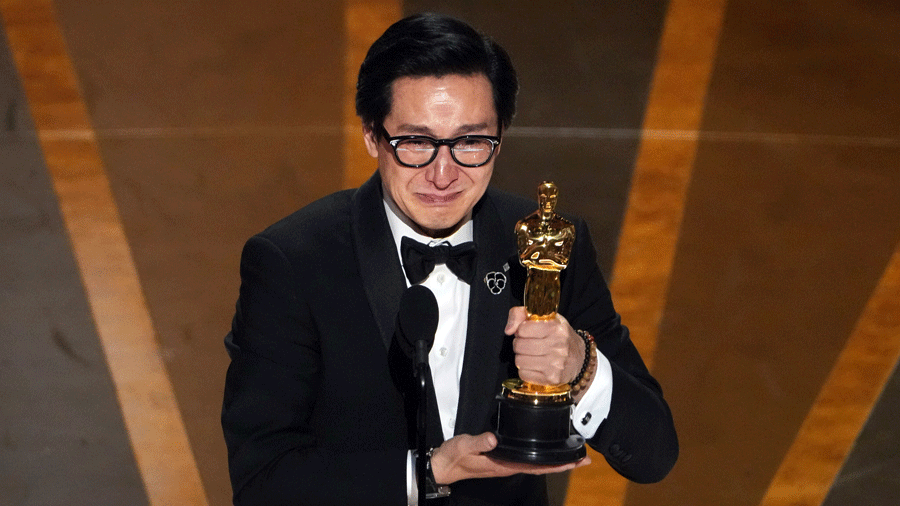
All at Once
“The only thing I do know is that we have to be kind. Please, be kind. Especially when we don’t know what’s going on,” Waymond says to Evelyn at the turning point of the film. It’s what makes Evelyn realize that the way she had been fighting was not going to work. It was messages of love, kindness and acceptance that helped Evelyn save the multiverse from destruction and while the Oscars chose the same path as Evelyn this award season, this message serves as a reminder that collective attitudes towards minorities must change, if we are ever to save our universe from the inequalities and oppression that may eventually destroy us.
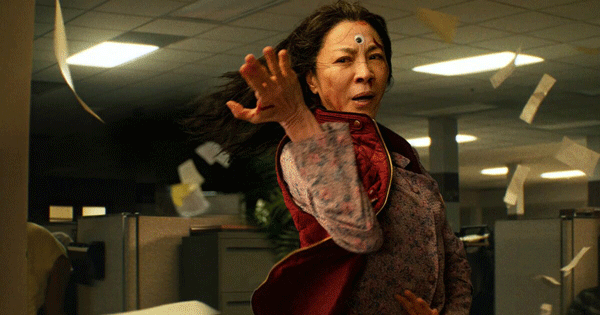
The team behind Everything Everywhere All at Once proved to the world that minorities in the film industry can do everything that everyone else can and that they are everywhere and all at once, their stories defy inequality and oppression to act as a beacon of light for minorities across the world. Seemingly, Everything Everywhere All at Once’s story and monumental award season run has changed everything everywhere and all at once.
